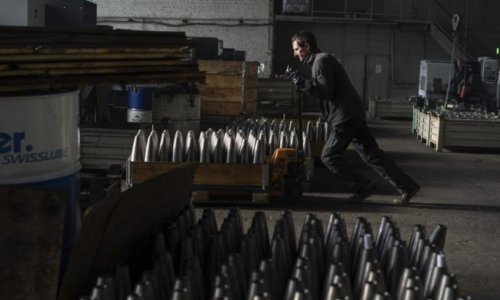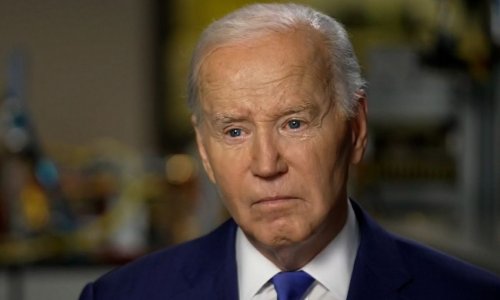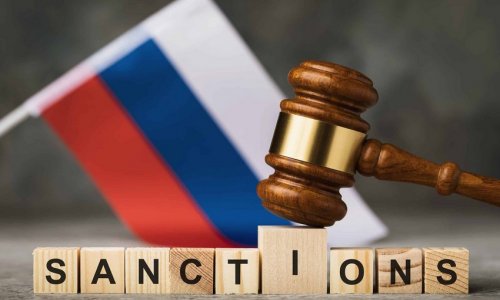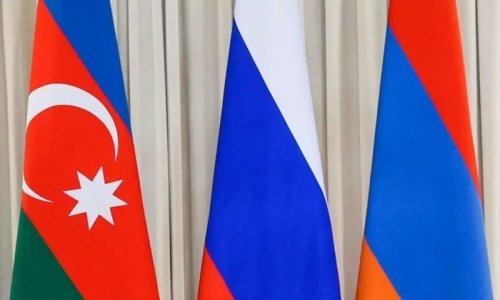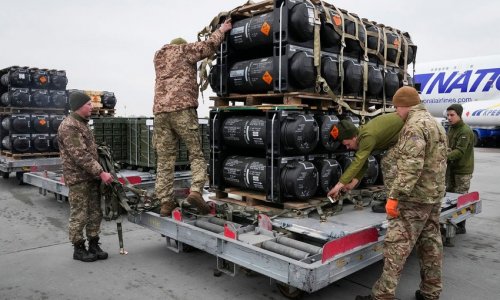Moscow should insist that the Syrian government allow desperately needed aid to reach Syrians who are dying of hunger and lack of medical care, due to sieges by President Bashar al-Assad's forces. But so far, it has shown no sign of supporting action at the United Nations: Russian envoy Vitaly Churkin noted last week that Russia was "against moving to a resolution now on the Security Council," saying that "it's not a good time."According to the United Nations, some 242,000 Syrians are facing extreme deprivation -- even starvation -- in besieged towns. With pictures of emaciated Syrian children now haunting headlines, there is in fact no time to waste.Syria has been deliberately obstructing aid, including by not allowing any relief convoys into some opposition-held areas. After huge effort, all parties agreed to a three-day pause in hostilities to allow aid to be delivered to the rebel-held old city of Homs last week. Russia's deputy foreign minister immediately took to Twitter to claim this deal "proves that Syrian humanitarian problems could only be solved by concrete steps instead of adoption of UNSC's politicized resolutions."In fact, the opposite is true.The Homs deal was a small but important step, but no breakthrough. The Homs deal was a small but important step, but no breakthrough. Partial relief for the 2,500 Syrians besieged in Homs does not change the situation for some 3 million Syrians who face hardship elsewhere in the country. And while roughly 1,000 people have been evacuated from the area, U.N. workers delivering relief came under mortar fire and several Syrians were killed while waiting for aid.The Homs deal also raises concerns that the Syrian government is twisting its obligations under the laws of war to intensify its crackdown. More than 300 men between the ages of 15 and 54 surrendered to Syrian authorities as part of the Homs evacuation. This group is being "screened" and their fate remains uncertain. As British Prime Minister David Cameron observed this week, the conflict holds worrying echoes of the Srebrenica massacre in the former Yugoslavia -- where men were separated from women and children, and subsequently massacred. There is also the possibility of retribution against people remaining in Homs after the evacuations, as the Syrian government may contend only "terrorists" remain in the city.The Syrian Arab Red Crescent (SARC), the humanitarian organization responsible for aid distribution across the country, agrees that there is a better ways to provide aid. It noted that an earlier offer by the Syrian government to evacuate women and children only if a list of men remaining was provided would "break the families and might lead to an escalation on the civilians left inside." The SARC said instead that all parties should be pushed to provide safe and unhindered access for aid and medical convoys everywhere in Syria.The Syrian government also won't allow humanitarian assistance coming from neighboring Turkey, and has placed obstacles in the way of deliveries into opposition areas from other countries. It has played twisted games within the country as well, forcing aid convoys to travel circuitous and dangerous routes that take as much as 10 times longer than the direct option -- effectively sentencing thousands of people to hunger, sickness, and sometimes death.These policies completely ignore Syria's obligation under the laws of war to let aid reach every civilian who needs it. But the government is not the only group that deserves some blame: Opposition groups have laid siege and denied humanitarian assistance to thousands of civilians in Shiite towns like Zahra and Nubbul that they consider pro-government. The hostility by some radical Islamic elements toward international aid also poses huge risks to aid workers and undermines aid deliveries in opposition-held areas -- without much outcry from Gulf countries, where much of the funding for these groups allegedly originates.So Putin has a point: All of Syria's atrocities cannot be placed solely at the feet of the regime. Nevertheless, when it comes to stopping these war crimes, the buck stops with Russia, Syria's chief backer at the United Nations. Moscow, however, has long opposed U.N. action to push Assad's government to meet its international obligations. Following last fall's chemical weapons deal brokered by the U.S. government and Russia, the council's silence on Syria's humanitarian catastrophe became increasingly untenable.While still opposing a resolution, Russia supported a less influential Security Council presidential statement on Oct. 2 that made detailed demands on all parties to address the humanitarian crisis. U.N. humanitarian coordinator Valerie Amos and many countries have invested immense effort in using that statement to break the logjam, but to no avail.Russia now has a critical chance to help resolve the humanitarian crisis by supporting a strong Security Council resolution that demands safe passage of aid to all civilians by the most effective means available. Such a resolution would make clear to the Syrian government that this time Moscow means business -- and bring the spirit of Sochi to the people of Syria.(foreignpolicy.com)ANN.Az
Letting Syria Starve While Sochi Shines
World
22:00 | 14.02.2014
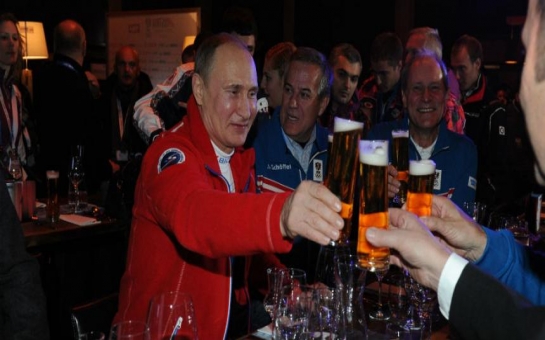
Letting Syria Starve While Sochi Shines
Russian President Vladimir Putin is proudly presenting the Winter Olympics in Sochi -- but his foreign policy in Syria doesn't live up to Olympic ideals. Just a week after his own foreign ministry proposed that a humanitarian ceasefire be observed in Syria during the Olympics, Putin's government is now the principal holdout on the U.N. Security Council against a resolution that would turn those fine sentiments into action.
Follow us !

